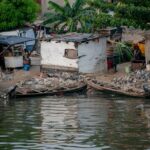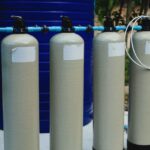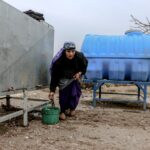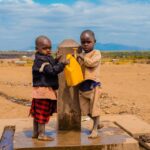Is It Safe to Drink Tap Water in Ghana?
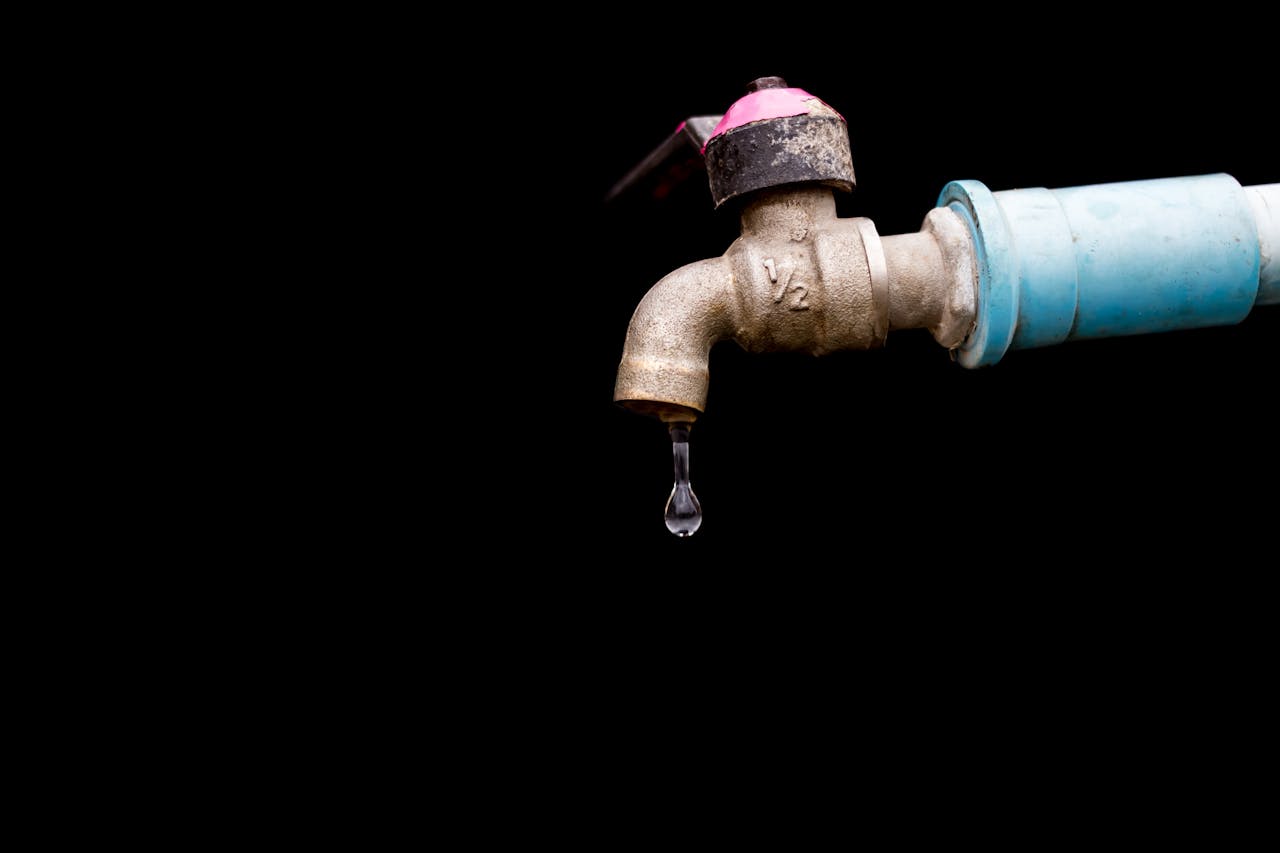
Water is essential for life, and having access to clean drinking water is something everyone deserves. In Ghana, many people wonder whether tap water is safe to drink. Some trust it, while others avoid it entirely. This article looks at how tap water is supplied, treated, and whether it is truly safe for drinking.
Overview of Ghana’s Tap Water Supply
In Ghana, tap water is mainly provided by the Ghana Water Company Limited (GWCL). They treat and distribute water to homes, businesses, and public places. Most of this water comes from rivers, lakes, and reservoirs, which go through purification before reaching people.
Urban areas like Accra, Kumasi, and Takoradi have a more reliable supply of tap water, but some neighborhoods still experience shortages. In rural areas, access to piped water is more limited, and many people rely on boreholes, wells, or sachet water instead.
Ghana’s Water Treatment Process
Before tap water reaches homes, it goes through a treatment process to remove dirt, bacteria, and harmful chemicals. Ghana treats its tap water through a structured process managed by the Ghana Water Company Limited (GWCL). The water is sourced mainly from rivers and lakes, such as the Volta and Densu rivers. The treatment process involves several steps:
• Screening: Large debris like leaves and sticks are removed.
• Coagulation and Flocculation: Chemicals are added to bind smaller dirt particles together.
• Sedimentation: The clumped dirt settles at the bottom, making it easier to filter out.
• Filtration: The water passes through layers of sand, gravel, and charcoal to remove smaller impurities.
• Disinfection: Chlorine or other disinfectants are added to kill harmful bacteria and viruses.
This process ensures that the water leaving treatment plants meets national and international safety standards before reaching homes and businesses.
Potential Risks in the Water Supply
Even though treated water meets safety standards at the source, several factors can compromise its quality before it reaches the tap. These include:
• Old or Broken Pipes: Some water pipes in Ghana are old and corroded, which can lead to contamination.
• Illegal Connections: Unauthorized taps and water theft can introduce pollutants into the supply.
• Weather changes: Heavy rains can cause flooding, washing dirt and waste into the water supply.
• Storage Issues: Many homes store water in tanks, which, if not properly maintained, can become breeding grounds for bacteria.
• Pollution from Surroundings: In some areas, water pipelines run close to open drains, increasing the risk of contamination.
These risks mean that even though the water is treated, its safety by the time it reaches consumers is not always guaranteed. That is why many people choose to boil tap water or use filters before drinking it.
How Safe is Tap Water in Major Ghanaian Cities?
The safety of tap water varies across Ghana:
• Accra: The capital city generally has better water quality due to improved infrastructure, but occasional contamination issues still arise.
• Kumasi: Water supply is fairly reliable, but interruptions force residents to rely on storage tanks, which can affect water quality.
• Tamale: Access to treated tap water is less consistent, and some residents depend on boreholes.
• Takoradi: The industrial presence in the region raises concerns about chemical contamination in water sources.
While water treatment efforts are in place, local conditions and infrastructure challenges affect overall safety.
The Role of Ghana Water Company Limited (GWCL)
GWCL is responsible for providing clean water to urban areas. They:
• Manage water treatment plants across the country.
• Regularly test water quality to meet safety standards.
• Repair and upgrade pipelines to prevent contamination.
• Implement new technologies to improve supply and reduce losses.
Despite these efforts, challenges such as funding, maintenance, and illegal connections make it difficult to ensure clean water for all Ghanaians.
Government Efforts to Improve Tap Water Quality
The Ghanaian government, through agencies like the Ghana Water Company Limited (GWCL) and the Community Water and Sanitation Agency (CWSA), has been working to improve water quality. Some key efforts include:
• Upgrading Water Treatment Plants: Investments have been made in modernizing water treatment facilities to enhance purification processes.
• Expanding Access to Safe Water: Various projects aim to extend pipe-borne water supply to more communities, especially in rural areas.
• Regulating Sachet and Bottled Water: The FDA enforces quality control standards to ensure packaged drinking water is safe for consumers.
• Public Awareness Campaigns: Initiatives educate citizens on proper water handling and the dangers of drinking untreated water.
Despite these efforts, challenges such as outdated infrastructure, pollution, and funding gaps still affect the consistency and quality of tap water.
The Role of NGOs and International Organizations
Non-governmental organizations (NGOs) and international bodies play a significant role in improving water access and safety in Ghana. Their contributions include:
• Providing Clean Water Solutions: NGOs like Aqua Maya work to bring clean and safe drinking water to underserved communities.
• Building and Repairing Water Infrastructure: Some organizations install boreholes, wells, and filtration systems to supplement public water supplies.
• Advocacy for Policy Changes: International groups support local governments in shaping policies that prioritize safe drinking water.
• Educational Programs: NGOs raise awareness on water hygiene, sanitation, and the importance of proper water treatment.
Collaborations between the government, NGOs, and international bodies continue to be essential in making safe drinking water accessible to more people.
What Individuals Can Do to Ensure Safe Drinking Water
While larger organizations work on improving water infrastructure, individuals also play a role in ensuring their drinking water is safe. Steps people can take include:
• Boiling Water Before Drinking: This is one of the simplest ways to kill bacteria and parasites in tap or well water.
• Using Water Filters: Household filtration systems help remove contaminants and improve water taste.
• Storing Water Properly: Using clean, covered containers prevents recontamination.
• Regularly Cleaning Water Tanks: If using storage tanks, cleaning them periodically ensures water quality is maintained.
• Checking Water Quality Reports: Staying informed about local water safety updates helps people take necessary precautions.
By taking these small but important actions, individuals can protect themselves and their families from waterborne diseases.
Common Waterborne Diseases in Ghana
Unsafe drinking water can expose people to several waterborne diseases, some of which are common in Ghana:
• Cholera: Often caused by drinking contaminated water, cholera leads to severe diarrhea and dehydration.
• Typhoid Fever: This bacterial infection spreads through water and food contaminated with human waste. Symptoms include fever, weakness, and stomach pain.
• Hepatitis A: Caused by a virus found in contaminated water, this disease affects the liver and can lead to serious health complications.
• Diarrheal Diseases: Many bacterial and parasitic infections from unsafe water cause diarrhea, which can be deadly, especially for children.
• Guinea Worm Disease: Though nearly eradicated, this painful infection was historically linked to drinking untreated water.
These health risks point out the importance of ensuring that drinking water is clean and safe.
Impact of Climate Change on Water Quality
Climate change is affecting water sources in Ghana, making access to safe drinking water more challenging. Some key impacts include:
• Unpredictable Rainfall Patterns: Droughts reduce water availability, while heavy rains increase the risk of water contamination.
• Increased Water Pollution: Rising temperatures and extreme weather events cause floods that wash waste into rivers and reservoirs.
• Saltwater Intrusion: In coastal areas, rising sea levels can lead to saltwater mixing with freshwater sources, making them undrinkable.
• Strain on Water Infrastructure: More extreme weather conditions can damage pipes and treatment plants, disrupting water supply.
Future of Safe Drinking Water in Ghana
While challenges remain, the future of safe drinking water in Ghana is promising due to ongoing efforts in:
• Technology and Innovation: Advancements like solar-powered water purification systems and mobile water testing kits are helping communities get clean water.
• Improved Infrastructure: Investments in water treatment plants, pipelines, and storage systems are gradually enhancing water quality and supply.
• Stronger Policies and Regulations: The government is working on stricter enforcement of water quality standards to protect public health.
• Community Involvement: More people are becoming aware of water safety and taking steps to ensure their drinking water is clean.
With continued progress in these areas, access to safe drinking water in Ghana can significantly improve in the coming years.
Conclusion
Access to safe drinking water is essential for good health, yet many people in Ghana still face challenges with water quality. While tap water in urban areas may go through treatment processes, issues like outdated infrastructure, illegal connections, and contamination risks mean that extra caution is needed before drinking directly from the tap. Rural communities face even greater difficulties, often relying on untreated sources that may not be safe.
Government agencies, NGOs, and private organizations are working to improve water treatment systems and infrastructure. Efforts like Aqua Maya’s mission to provide clean water to underserved communities play a crucial role in ensuring safe drinking water for all. However, individuals also have a part to play by using filtration methods, practicing proper water storage, and staying informed about water quality in their areas.
With continued investment in water infrastructure, stronger regulations, and community awareness, Ghana can move closer to ensuring that everyone has access to clean and safe drinking water. Until then, it remains important for residents to take necessary precautions to protect their health.
Sources
1. https://link.springer.com/article/10.1007/s13201-018-0736-4#ref-CR19
2. https://www.sciencedirect.com/science/article/abs/pii/S019739752300125X
4. https://www.unicef.org/ghana/water

